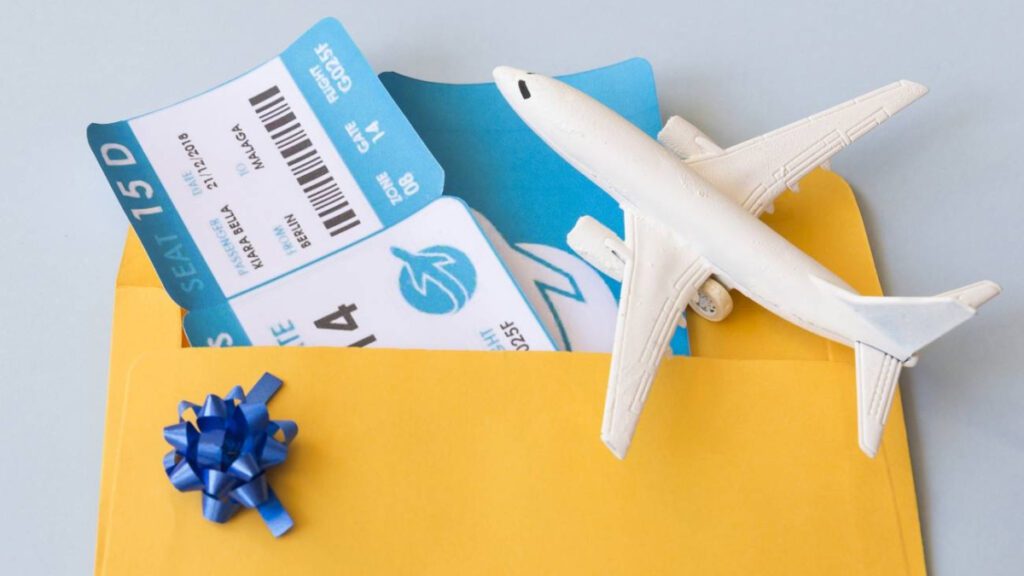Planning overseas travel often comes with the hassle of a visa, flight booking, and insurance. Especially when using a Dummy Ticket—a temporary unpaid flight reservation made to fulfill visa requirements—travelers need to ponder a very important question: should travel insurance be purchased based on the showcased itinerary? This article analyzes the benefits and risks of having travel insurance with a dummy air ticket, enabling you to make the best, most sensible decision.

Understanding Dummy Ticket and Travel Insurance
A Dummy Ticket (also referred to as a Dummy Flight Ticket or dummy ticket for visa) is a confirmed reservation with a PNR and travel dates, but no actual payment made. It helps fulfill the proof of travel requirement for most consulates without incurring major costs.
Travel insurance covers trip cancellations, medical emergencies, and baggage issues. Despite offering a plethora of benefits, insurers often need a confirmed paid itinerary to underwrite full coverage.
Pros of Booking Travel Insurance with a Dummy Ticket
Meets Visa and Insurance Timing Requirements
Schengen and other consulates often require insurance to be in place before the visa is issued. Dummy flight tickets offer a preset itinerary that allows you to purchase insurance ahead of time, even before buying an actual ticket.
Most insurers let you purchase policies right up to your departure, and a verifiable dummy booking is often sufficient to secure travel insurance in advance.
Financial Flexibility
Insurance helps you avoid the risk of non-refundable ticket expenses. Instead, a small fee for a dummy air ticket helps secure your travel insurance and plan ahead.
If your visa is delayed or denied, you only lose the dummy Flight ticket fee instead of the full airfare.
Planning Buffer
If your embassy appointment changes, dummy air tickets can often be extended or rebooked for a small fee. This flexibility allows you to sync your insurance dates with your updated travel plans—helping you maintain uninterrupted coverage.
Cons of Booking Travel Insurance with a Dummy Ticket
Insurer Underwriting Constraints
Insurers may reject policies issued on the basis of unpaid dummy air tickets. They often require proof of payment to validate claims related to cancellations or interruptions.
If insurers verify your PNR and find no fare paid, they may void your policy. Always confirm if your insurer accepts held reservations as valid documentation.
Scenarios with Unclear Claims
Dummy tickets don’t involve real money, so trip cancellation benefits may not apply. If a medical emergency occurs overseas and your dummy flight ticket was modified after insurance was issued, coverage gaps may result.
Extra Steps
In a claim situation, insurers may request ticket payment evidence. This adds an administrative layer requiring quick communication with both your insurance and dummy air ticket provider.
Checklist of Recommendations
- Confirm with your insurer if a dummy flight ticket PNR is sufficient as proof of itinerary.
- Use insurers who allow retroactive policy date changes once the actual ticket is issued.
- Choose cancel-for-any-reason upgrades if available—ideal for dummy-based applications.
- Buy insurance immediately after receiving your dummy PNR to lock rates and match coverage dates with your visa process.
- Use reputable dummy flight ticket services like Dummy-ticket.travel, which often assist with both visa and insurance documentation.
Alternatives and Variations
- Airline Free Hold Options: Airlines like American and Delta offer 24–72 hour holds on paid bookings. Pairing these with insurance provides a risk-free option.
- Refundable Downpayments: Pay a small, fully refundable deposit on a genuine ticket to meet both visa and insurance needs.
- Multi-City Holds: Booking multiple segments enhances the legitimacy of your itinerary for both consular and insurance purposes.
Conclusion
Acquiring travel insurance with a dummy ticket can help fulfill visa application requirements and offer flexibility. However, it comes with risks—especially regarding underwriting and claims approval. Always confirm your insurer’s stance on dummy bookings and maintain transparent communication between the insurer and the dummy flight ticket provider.
Following best practices—like using trusted providers such as Dummy-ticket.travel—ensures that both your travel insurance and visa requirements are met.
Travel always involves risk. But with the right preparation, dummy flight ticket can offer convenience while still allowing robust insurance coverage—keeping your international journey smooth, compliant, and stress-free.

